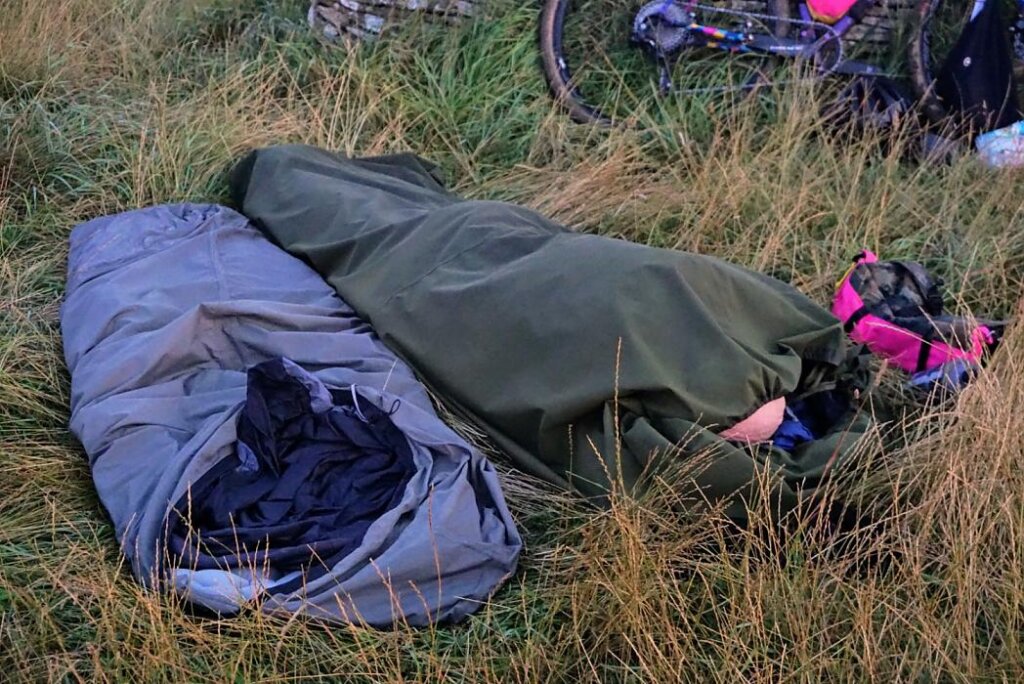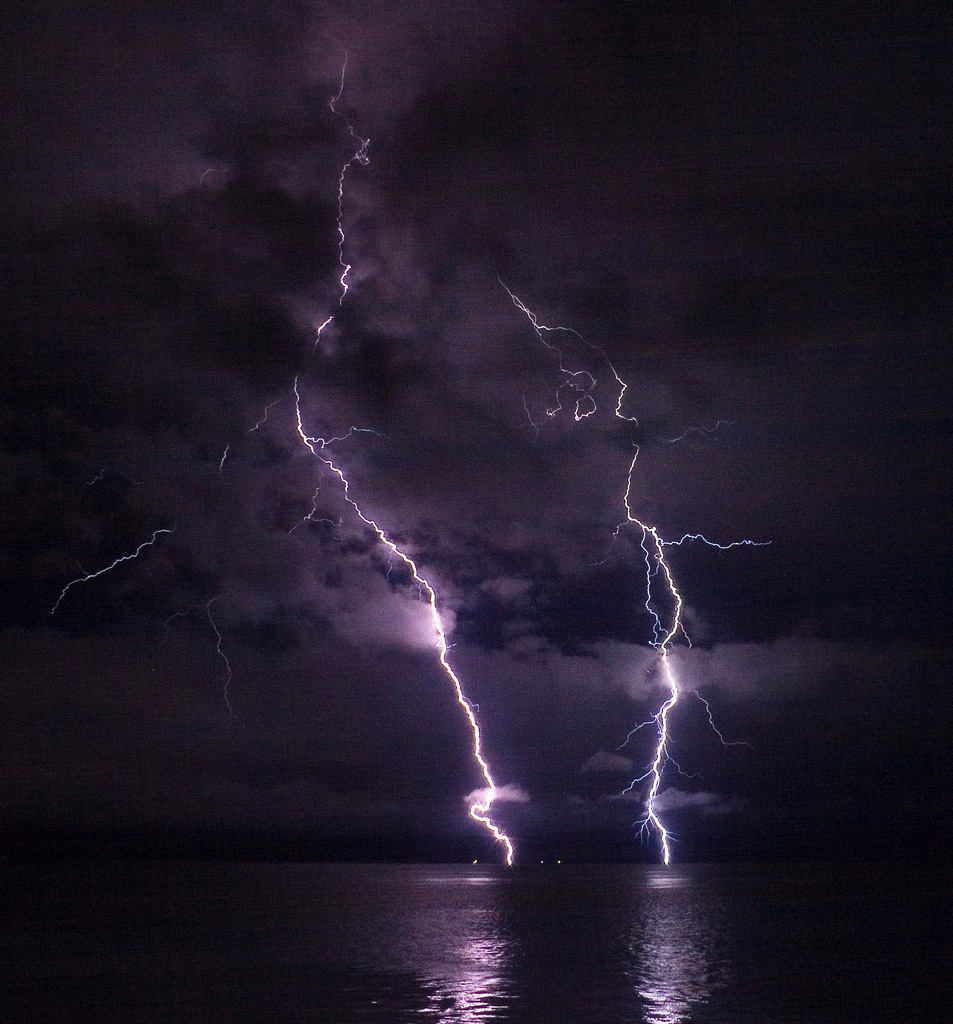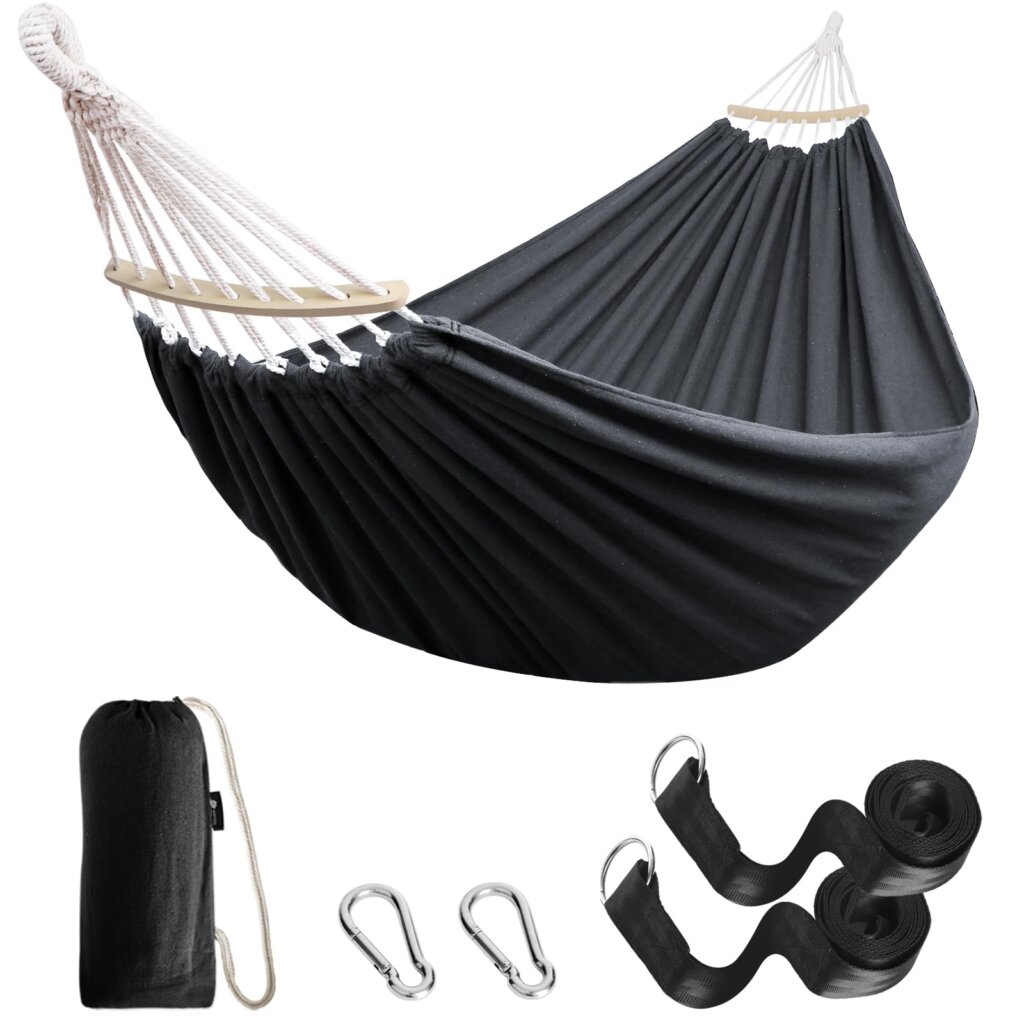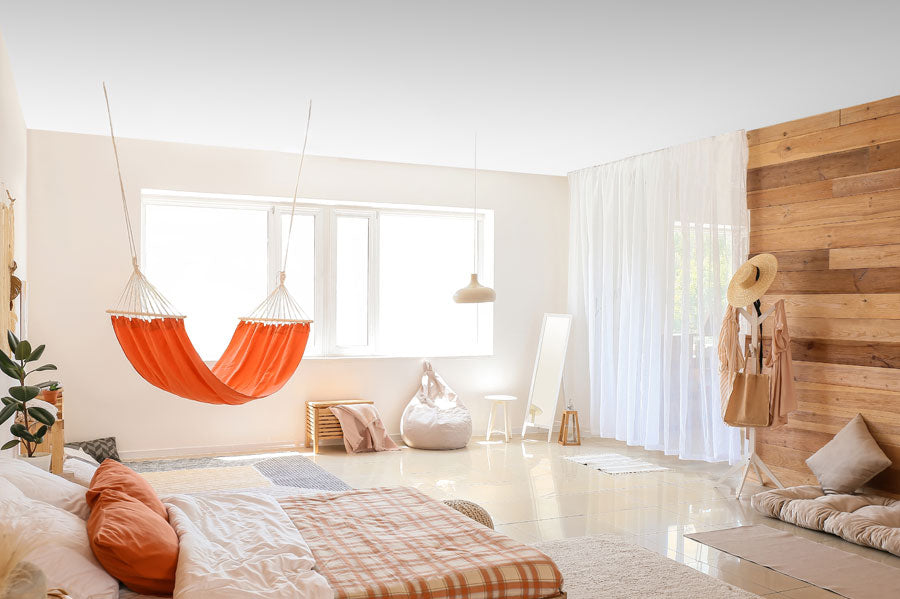- 8 Airplane Footrest Hammock!Travel comfortably - October 9, 2023
- top 7 Pool Float Water Hammock for a Relaxing Summer - October 9, 2023
- top 5 Space SaverSingle Hammock Stand Maximize Comfort and Space - October 9, 2023
Which is best for you: a hammock or a bivy? While hammocks offer a comfortable and enjoyable sleeping experience, they may feel restrictive for those who toss and turn or switch positions frequently.
On the other hand, bivys provide flexibility and can be used as bug bivys in certain situations, but they may not be as comfortable as hammocks. Ultimately, the choice depends on personal preferences and specific camping conditions.
1. The Benefits Of Hammock Camping
IntroductionHammock camping is becoming increasingly popular among outdoor enthusiasts, and for good reason. Not only does it provide a unique and immersive outdoor experience, but it also offers numerous benefits that make it a tempting choice for adventure seekers.
H3: Lightweight and portableLightweight And Portable
One of the major advantages of hammock camping is its lightweight and portable nature. Unlike traditional tents, hammocks are compact and easy to pack. They are a perfect choice for hikers, backpackers, and anyone who values a lightweight gear setup.
H3: Comfortable sleeping positionComfortable Sleeping Position
Another benefit of hammock camping is the comfortable sleeping position it provides. Sleeping in a hammock eliminates the need for sleeping on uneven terrain or rocks, ensuring a more restful and comfortable night’s sleep. The gentle swaying motion of the hammock helps to lull you into a peaceful slumber, making it an ideal choice for those who struggle with back pain or other sleeping issues.
H3: Enhanced breathabilityEnhanced Breathability
Hammocks also offer enhanced breathability compared to traditional tents. The open design allows air to circulate freely, preventing condensation buildup and keeping you cool during hot summer nights. This increased airflow not only helps to regulate temperature but also provides a fresh and comfortable sleeping environment.
H3: Versatile setup optionsVersatile Setup Options
One of the standout features of hammock camping is the versatile setup options it offers. Hammocks can be easily hung between trees, allowing campers to take advantage of scenic views and unique campsite locations that are inaccessible to traditional tents. Furthermore, hammocks can be set up at various heights and angles, giving campers the freedom to find their desired comfort level and adjust their setup to their liking.
2. The Advantages Of Using A Bivy
Improved Protection Against Insects And Weather
Bivy sacks are designed to provide enhanced protection against insects and weather conditions. When camping with a bivy, you can say goodbye to pesky insects disturbing your sleep. The snug and enclosed design of a bivy prevents bugs from sneaking in, allowing you to have a peaceful night’s sleep without the worry of creepy crawlers. Additionally, a bivy is also effective in shielding you from the elements. The waterproof and breathable materials used in bivy sacks keep you dry during rainy weather, ensuring a comfortable camping experience even in the most unfavorable conditions.
Ground-level Sleeping Experience
Sleeping in a bivy brings you closer to nature, as you are at ground level, unlike a hammock that suspends you above the ground. This ground-level sleeping experience allows you to feel more connected to the environment, making it an ideal choice for those who prefer a closer interaction with nature. You can feel the softness of the earth beneath you and truly immerse yourself in the camping experience.
Minimal Setup And Pack-down Time
One of the major advantages of using a bivy is its minimal setup and pack-down time. Unlike hammocks that require finding suitable trees and attaching straps and hooks, a bivy can be set up quickly and easily. With just a few simple steps, you can have your bivy ready for a restful night’s sleep. This time-saving aspect is especially beneficial for those who prefer a hassle-free camping experience or frequently move campsites.
Better Insulation In Cold Environments
For camping in cold environments, a bivy offers better insulation compared to a hammock. The close proximity to the ground in a bivy helps retain more heat, keeping you warmer during chilly nights. The compact, enclosed design of a bivy also helps to reduce drafts, further improving insulation. This makes bivy sacks an excellent choice for winter camping or camping in colder climates where staying warm is a top priority.
3. Factors To Consider When Choosing Between Hammock And Bivy
Camping Environment And Terrain
When choosing between a hammock and a bivy, one important factor to consider is the camping environment and terrain. Each option has its own advantages and disadvantages depending on the location and conditions of the campsite.For instance, a hammock is a great choice for camping in areas with trees, as it allows you to hang above the ground and provides a comfortable sleeping experience. On the other hand, if you’re camping in rocky or uneven terrain where finding suitable trees might be challenging, a bivy may be a more practical choice. The bivy provides a sheltered space on the ground, allowing you to sleep relatively flat and protected from the elements.Personal Preference And Sleeping Habits
Another crucial factor to consider is your personal preference and sleeping habits. Everyone has unique preferences when it comes to sleeping positions and comfort levels.If you prefer sleeping in an enclosed space with minimal movement, a bivy might be a better option for you. Bivys provide a sense of security and allow you to sleep on a flat surface, similar to a traditional tent. However, if you enjoy the gentle swaying motion of a hammock and prefer a more open sleeping experience, then a hammock would be a great fit for you.Weight And Packability Requirements
Weight and packability are significant considerations for any camping gear, including hammocks and bivys. If you prioritize lightweight gear and easy portability, then a hammock might be the better choice for you. Hammocks are typically lightweight, compact, and can easily fit into a backpack without taking up much space.On the other hand, if you’re looking for a minimalist camping experience and prefer to travel light, a bivy could be the ideal option. Bivys are generally smaller and lighter than hammocks, making them easy to pack and carry.Budget Considerations
Budget is always an important factor when making any purchasing decision. Hammocks and bivys come in a wide range of prices, so it’s essential to consider your budget before making a choice.Hammocks can vary in price depending on the quality of materials and additional features such as built-in bug nets or rain flys. Bivys, on the other hand, tend to be more affordable as they are simpler in design and construction.Ultimately, the choice between a hammock and a bivy will depend on your individual needs, preferences, and the specific camping conditions you anticipate. Assessing these factors will help you make an informed decision and ensure that you choose the option that best suits your camping style and requirements.4. Common Concerns About Hammock And Bivy Camping
Sleep Quality And Comfort
When it comes to sleep quality and comfort, both hammocks and bivy camping have their pros and cons. Hammocks provide a unique sleeping experience, allowing you to gently sway and feel cradled by nature. This can create a sense of relaxation and improve the quality of your sleep. Additionally, hammocks can alleviate pressure points and provide a more even distribution of weight, resulting in a more comfortable sleep.
On the other hand, bivy camping can offer a more traditional sleeping experience. With a bivy sack, you are closer to the ground and have a more stable sleeping surface. Some campers prefer the feeling of being enclosed in a bivy sack, which can provide a sense of security and protect you from the elements.
Durability And Longevity Of Equipment
When it comes to the durability and longevity of equipment, hammocks and bivy sacks have different considerations. Hammocks are typically made of strong and sturdy materials, such as parachute nylon or ripstop fabric, which can withstand regular use and resist wear and tear. However, the lifespan of a hammock can be affected by factors such as exposure to harsh weather conditions and improper storage.
Bivy sacks, on the other hand, are usually made of waterproof and abrasion-resistant materials like Gore-Tex or Silnylon. These materials are designed to withstand rugged outdoor conditions and provide long-lasting durability. With proper care and maintenance, a bivy sack can last for many years of camping adventures.
Accessibility And Availability Of Suitable Camping Spots
When it comes to accessibility and availability of suitable camping spots, hammocks and bivy camping can have different requirements. Hammocks require trees or sturdy anchor points to set up, making them less suitable for camping in treeless or rocky terrains. This can limit your options and make it more challenging to find suitable camping spots.
Bivy camping, on the other hand, offers more flexibility when it comes to finding suitable camping spots. Bivy sacks can be set up on any relatively flat surface, making them suitable for various terrains, including rocky or uneven ground. This allows campers to explore a wider range of camping locations and find more secluded spots.
Adaptability To Different Weather Conditions
When it comes to adaptability to different weather conditions, both hammocks and bivy sacks have their advantages. Hammocks can provide better ventilation and airflow, making them suitable for hot and humid climates. They also allow you to easily add additional insulation, such as an underquilt or sleeping pad, for colder weather.
Bivy sacks, on the other hand, offer better protection from wind, rain, and snow. The waterproof and windproof materials used in bivy sacks can help keep you dry and warm even in harsh weather conditions. Additionally, bivy sacks provide a more enclosed sleeping space, which can be beneficial in keeping insects and critters at bay.
5. Making The Decision: Which Option Is Best For You?
Choosing between a hammock and a bivy can be a challenging decision, especially if you’re new to camping or outdoor adventures. To help you make the right choice, there are several factors you should consider.
Assessing Your Camping Goals And Priorities
Before deciding between a hammock and a bivy, it’s essential to assess your camping goals and priorities. Are you looking for ultimate comfort and relaxation or lightweight and minimalist gear? If you prioritize comfort, a hammock might be the best option for you. It provides a cozy and elevated sleeping experience, perfect for lounging and enjoying nature. On the other hand, if you prioritize lightness and simplicity, a bivy could be the ideal choice. It offers a compact and easy-to-setup alternative to traditional tents.
Trying Out Both Options Before Making A Decision
To truly understand which option is best for you, it’s important to try out both a hammock and a bivy before making a decision. Set up a hammock and spend a night lounging and sleeping in it. Pay attention to how comfortable you feel and whether it meets your expectations. Similarly, try out a bivy by setting it up and spending a night in it. Consider factors like space, ease of setup, and overall comfort. By experiencing both options firsthand, you’ll be able to make a more informed decision.
Considering The Specific Demands Of Your Camping Trips
Each camping trip comes with its own specific demands and requirements. Consider factors like the weather conditions, terrain, and duration of your trips. If you frequently camp in areas with limited tree cover or rocky terrains, a bivy might be more practical as it doesn’t rely on trees or specific ground conditions. Conversely, if you often camp in forested areas with plenty of trees, a hammock offers a unique and enjoyable experience.
Seeking Advice From Experienced Campers Or Outdoor Enthusiasts
When making a decision, it’s always helpful to seek advice from experienced campers or outdoor enthusiasts. They can provide valuable insights based on their own experiences and preferences. Ask them about their thoughts on hammocks vs. bivies and listen to their recommendations. However, keep in mind that personal preferences may vary, so it’s important to consider your own needs and preferences before making a decision.
By assessing your camping goals and priorities, trying out both options, considering the specific demands of your camping trips, and seeking advice from experienced campers or outdoor enthusiasts, you’ll be able to make an informed decision on whether a hammock or a bivy is the best option for you.
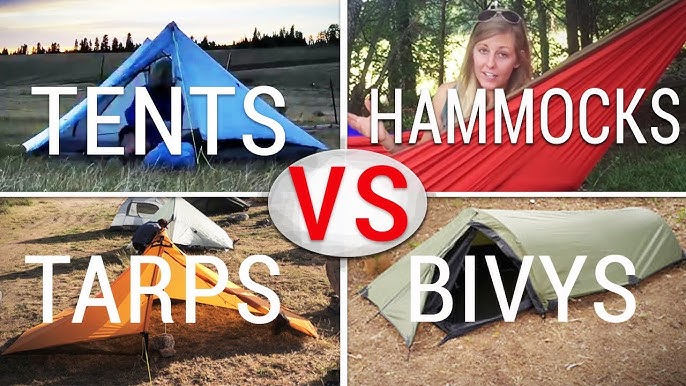
Credit: m.youtube.com
Frequently Asked Questions Of Hammock Vs Bivy: Which One Is Best For You
What Are The Disadvantages Of Hammock Camping?
Sleep Issues: Hammock camping may feel restrictive and uncomfortable for those who toss and turn or switch positions frequently during sleep.
Is It Better To Sleep In A Tent Or A Hammock?
Sleeping in a hammock is better than a tent. It is more comfortable, enjoyable, and easier to set up. However, if you toss and turn a lot or switch positions frequently, hammock camping might feel restrictive and uncomfortable.
Can You Use A Hammock As A Bivy?
Yes, you can use a hammock as a bivy. Hammocks can be versatile and can also act as a bug bivy or be ground pitched with a tarp. However, keep in mind that hammocks may sleep colder than tents during winter camping.
Is Sleeping In A Hammock Colder Than A Tent?
Sleeping in a hammock can be colder than a tent due to the lack of insulation from the ground. Additional gear like tarps, under-quilts, and sleep pads are necessary to stay warm in colder conditions. Hammocks are not as convenient for changing clothes compared to tents.
Can Hammock Camping Cause Sleep Issues?
Hammock camping might feel restrictive and uncomfortable for those who toss and turn a lot or switch positions throughout the night.
Is Hammock Camping More Comfortable Than Tent Camping?
Hammock camping is more comfortable, enjoyable, and easier to set up and take down compared to tent camping.
Can A Hammock Be Used As A Bivy?
Hammocks can be used as a bivy in certain situations, such as when there is no suitable spot for hanging or when a bug net is needed.
Conclusion
When choosing between a hammock and a bivy, it ultimately comes down to personal preference and specific camping needs. Hammocks offer a comfortable and enjoyable sleeping experience, easy setup, and versatility. On the other hand, bivys provide a lightweight and compact option, better protection from the elements, and the ability to sleep on the ground when necessary.
Consider your own sleeping habits, climate conditions, and desired convenience to determine which option is best for your outdoor adventures. Happy camping!

